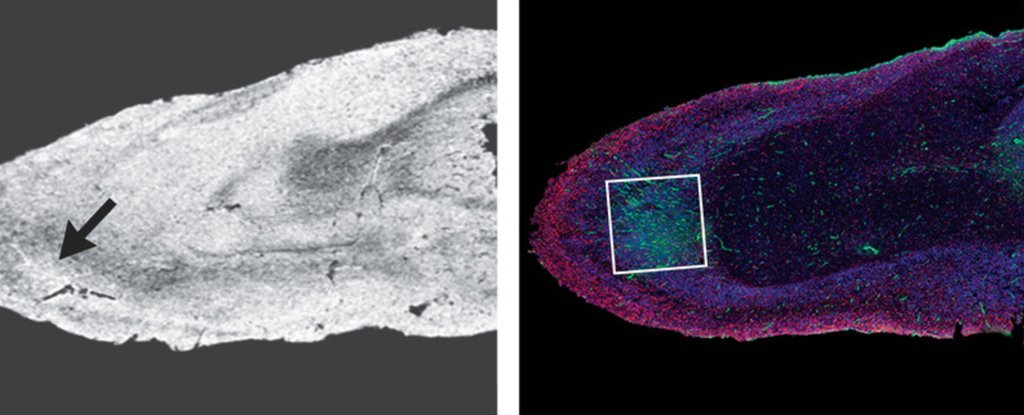
As COVID-19 relentlessly infects us more and more of us, scientists are closely analyzing the strange and terrifying damage it can cause to our bodies.
We have known since the beginning of the pandemic that this disease wreaks havoc on something more than the respiratory system, also causing gastrointestinal conditions, heart damage and blood clotting disorders.
Now, a year after the pandemic, in-depth autopsies of patients with COVID-19 have revealed more details about widespread inflammation and damage to brain tissue. This may help explain the deluge of neurological symptoms that have manifested in some patients, from headaches, memory loss, dizziness, weakness and hallucinations to more severe seizures and strokes.
Some estimate that up to 50 percent of those hospitalized with COVID-19 may have neurological symptoms that can leave people struggling to do even common daily tasks such as preparing a meal.
“We were completely surprised. Originally, we were expecting to see damage caused by lack of oxygen,” said Avindra Nath, a doctor and clinical director at the National Institutes of Health (NIH).
“Instead, we saw multifocal areas of damage that are often associated with stroke and neuroinflammatory disease.”
NIH researchers, including Dr. Myoung-Hwa Lee and Nath, performed detailed brain tissue examinations of 19 dead patients. They ranged in age from 5 to 73 years and many had severe coronavirus risk factors, including diabetes and cardiovascular disease.
Using a powerful MRI microscope, Lee and the team identified 10 patients with brain abnormalities. A more detailed examination under a microscope revealed hyperintensities (bright spots on the micrographic image of brain samples), which fluorescent microscopy showed had filtered fibrinogen (a protein in the blood).
T cells and specialized immune cells in the brain, microglia, surrounded these spots in several patients; there were also dark areas of coagulated bleeding. This led the researchers to conclude that these patients had experienced multiple cerebral hemorrhages, a type of damage usually associated with brain inflammation.
“Very small blood vessels in the brain were leaking,” Nath told NPR. “And it wasn’t uniform: here you’ll find a small blood vessel and a small blood vessel.”
It is not only those who are severely ill enough to require intensive care or who have pre-existing conditions who present with neurological symptoms of COVID-19.
“We’ve seen this group of younger people without conventional risk factors who have strokes and patients with acute changes in mental state that aren’t explained otherwise,” said Liverpool University neurologist Benedict Michael. Nature in September.
Patients have suffered from delusions and have developed psychosis. In one case, a 55-year-old woman began seeing lions and monkeys in her home, before believing that a friend or family member had been replaced by an identical impostor (a Capgras hoax).
Despite tests to detect the virus in brain tissue, Lee and the team found no trace of SARS-CoV-2, but were careful in their report: “It is possible that the virus has been cleared in the time of death or that viral copies were below the detection level for our trials. “
Although other studies have located traces of the virus in the brain, the levels were low and seem uncommon.
“So far, our results suggest that the damage we saw may not have been caused by the SARS-CoV-2 virus that directly infects the brain,” Nath said. Instead, the damage may be due to the body’s inflammatory response to the virus, he explained.
Due to the small sample size and limited clinical information, the team says they still cannot draw direct conclusions. But his findings align with EEG tests that have revealed encephalopathy in patients with COVID-19, alterations in typical brain electrical activity that can mean inflammation and inflammation.
It also aligns with studies showing that the virus can trigger other dangerous immune responses that, in some cases, cause even more damage than the virus itself.
Researchers are concerned about the long-term implications of brain inflammation on people’s health, as it is associated with memory loss and Alzheimer’s disease, and some patients already suffer from persistent neurological consequences such as chronic fatigue and Guillain-Barré syndromes.
“In the future, we plan to study how COVID-19 damages the blood vessels in the brain and whether this produces some of the short- and long-term symptoms we see in patients,” Nath said.
His report was published in New England Journal of Medicine.